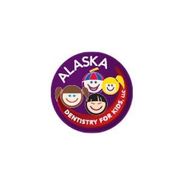Practice Dental Care When Celebrating National Popcorn Day

Whether your child prefers popcorn for their daily snack or at the movies, dental care should be practiced when enjoying this treat. When celebrating National Popcorn Day on January 19, there are some dental care tips you can encourage your child to follow as they savor their treat. Discover more about the evolution of popcorn and how your child can keep their smile safe while snacking.
The History of Popcorn
The oldest ears of corn used for popping were discovered in 1948 and are estimated to be around 4,000 years old. Popcorn was essential to many Indian tribes and was used to make garland, headdresses, necklaces, and ornaments for ceremonies. As popcorn became more widespread around the globe, its uses continued to evolve, from trimming Christmas trees to becoming a popular breakfast item. Many people ate popcorn with fruit and milk to start their day, rather than the typical cornflakes they’re used to in today’s society.
The Damage Popcorn Does to Your Teeth
While popcorn doesn’t pose a huge hazard to your child’s smile, there are certain issues that can arise if you’re not careful. For starters, unpopped kernels can chip or even fracture your child’s tooth if they accidentally bite down on one while snacking. Additionally, the shells of the kernels are thin and hard and can become stuck in between teeth and might even wind up under gums, leading to infection.
How to Safely Snack on Popcorn
 With certain precautions and dental care tips, popcorn can be enjoyed without any damage to your child’s teeth. Before sitting a bowl down in front of your child, make sure to remove any unpopped kernels to avoid breaking a tooth. Additionally, encourage your child to brush and floss after eating popcorn, even if it was just a few handfuls. Brushing and flossing can help remove any kernel shells stuck between teeth and prevent them from migrating to under the gums.
With certain precautions and dental care tips, popcorn can be enjoyed without any damage to your child’s teeth. Before sitting a bowl down in front of your child, make sure to remove any unpopped kernels to avoid breaking a tooth. Additionally, encourage your child to brush and floss after eating popcorn, even if it was just a few handfuls. Brushing and flossing can help remove any kernel shells stuck between teeth and prevent them from migrating to under the gums.
If you need more dental care tips before celebrating National Popcorn Day, visit the professionals at Alaska Dentistry for Kids in Anchorage. They are well-versed when working with younger patients and will help your child feel comfortable during their visit, whether it’s for preventive or restorative services. To find out more about how they can help you care for your child’s smile, visit them online or call (907) 274-2525.
About the Business
Have a question? Ask the experts!
Send your question

